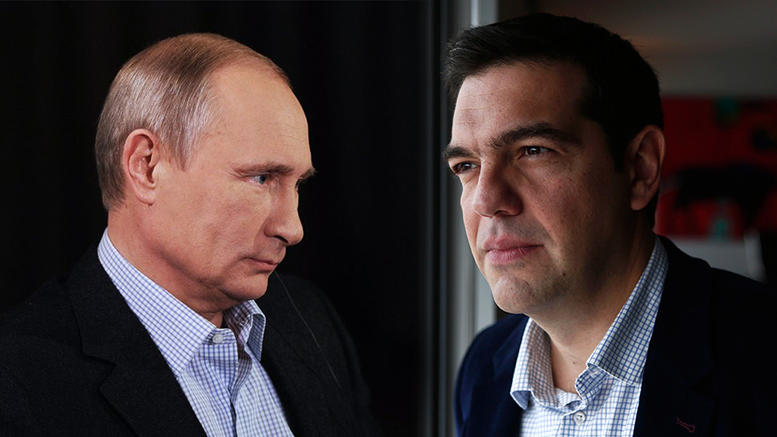
Russia could offer debt-ridden Greece controversial loans and discounts on supplies of natural gas in exchange for the country’s “assets”, according to reports in Moscow.
Alexis Tsipras, Greece’s prime minister, is due to arrive in the city on Tuesday and will meet Vladimir Putin, Russia’s president, on Wednesday.
Athens overtures to Moscow have raised fears the Leftist government is pivoting east in search of alternatives sources of finance as it bids to avoid bankruptcy. Ahead of his visit, Mr Tsipras condemned economic sanctions on Moscow as “a road to nowhere”.
Greece’s dalliance with the Kremlin has also attracted criticism for potentially undermining the EU’s united front against Russia’s military intervention in Ukraine.
Martin Schulz, the president of the European Parliament, said on Saturday that it would be “unacceptable” if Mr Tsipras “jeopardised Europe’s common policy on Russia” in return for Kremlin aid.
But Kommersant newspaper quoted an anonymous Russian government source on Tuesday saying that lines of credit were on the table.
“We’re ready to consider the question of providing Greece discounts on gas: the price for it is tied to the cost of oil which has significantly fallen in recent months,” the source said.
“We are also ready to discuss the possibility of granting Greece new loans. But here we, in turn, are interested in reciprocal moves – in particular, in Russia receiving particular assets in Greece.”
The source did not identify the assets concerned, but Russian media said the Greek gas company DEPA could be among them. Stakes in train operator TrainOSE and sea ports in Athens and Thessaloniki are also potential targets.
Moscow is Greece’s largest trading partner on account of its huge reliance on Russian natural gas.
Athens’ energy minister has invited Russian companies to explore natural gas and oil reserves off the country’s eastern coast. In return, Greece has indicated it is willing to support the Kremlin’s new pipeline plan though Turkey, known as “Turkish Stream”.
EU officials fear any Russian rescue loans or other sweeteners could persuade Athens to veto sanctions on the Kremlin over Ukraine, where Russia has supported separatists fighting Ukrainian government forces.
Besides credit and gas discounts, the Kremlin could offer Greece a partial lifting of its EU food import ban in exchange for Athens pushing a pro-Russia line.
Greece has been hit particularly hard by a fruit export ban in place since August. But the European Commission hinted at their opposition to any Greco-Russian food deal, saying all European countries should be treated equally.
Mr Tsipras’s arrival in Moscow comes as his cash-starved government hasthreatened to default on a €450m bailout repayment to the International Monetary Fund on Thursday.
But the possibility of Greece being in receipt of Russian largesse has receded as Moscow suffers precipitous declines in its foreign exchange reserves and faces its worst recession since 1999.
Athens owes €330bn to its international creditors, and has seen progress on its bail-out extension stall after weeks of acrimonious talks with Brussels.
The impasse means the probability of Greece defaulting on its creditors has risen to more than 50pc, according to analysts at UBS.
“We think a default is usually never wished for by any involved party, but may be considered the lesser of two evils by the institutions,” said the Swiss bank.
Telegraph

Leave a Reply
You must be logged in to post a comment.